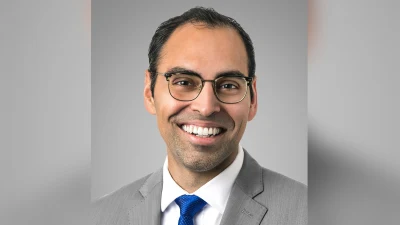Why choose a rewarding career in financial advice?


According to this adviser, the rewarding nature of financial planning is the most fundamental aspect of his career.
On a recent Financial Planning Association of Australia (FPA) podcast, financial advice professional, Julian Place, explored the attractive qualities of a financial planning career.
Now working as an FPA board director and retirement specialist at AMP, Place reflected on his 12 years throughout the industry.
“Absolutely,” he replied when asked if financial planning was a rewarding career, “that’s probably the number one thing about a career in advising.”
What he and his colleagues valued most about the job was being able to provide support to everyday Australians, which Place argued was the most important quality of the role.
“I think when you are an adviser, you are giving all the time. You’re giving people peace of mind, knowledge, discipline to review their financial affairs and certainty they’re going to achieve their goals,” he said.
Out of the key qualities an adviser had to possess, being a good listener and the ability to form long-standing client relationships were at the top of his list.
“People think [financial planning] is an advice business. It's not an advice business, it's a relationships business.”
In addition, the director reflected that often advisers could take the financial knowledge they had developed across their careers for granted.
“You get to understand that sharing what you might feel are pretty basic concepts with clients really gives them insight and relief that you didn’t realise is as powerful as it is.”
Although the role of an adviser juggled administrative duties alongside day-to-day client meetings, Place recognised the latter as “the most enjoyable part of the job”.
He noted daily responsibilities differed depending on if the adviser was self-employed or working for an established firm.
“I would say to young people, I certainly think working in an employed role is a great way to get experience actually at the craft of financial advice.
“There’s a lot of opportunity right now for early roles in your career in financial advice.”
Place acknowledged that self-employed advisers had to additionally carry the duties of running a small business, which he advised was not for everyone.
“Some have found running their own business in financial planning tough, and it's not easy nor is it getting any easier with some of the reforms and layers of compliance.”
For those considering starting up their own firm, he recommended to ask the following questions:
- Are you entrepreneurial?;
- Are you self-motivated and disciplined with your time?;
- Do you have the desire to do whatever it takes to actually be successful?;
- Are you smart with money?; and
- Are you aware of the financial risks associated with running a business?
Despite the potential challenges, Place reaffirmed: “For those who are driven and will do what it takes to succeed, you will succeed.”
Recommended for you
The Coalition has announced a new shadow treasurer and minister for financial services, while Jane Hume will exit the shadow ministry.
ASIC has cancelled the AFSL of a Sydney-based advice firm, describing how it demonstrated “competency failures” in its activities.
Morningstar behavioural scientist Ryan Murphy has shared the top annoyances held by clients towards their financial advisers and how it could impact their ongoing relationship.
Advice technology solution intelliflo has launched a fee consent screen to provide financial advisers with enhanced fee tracking abilities, responding to latest DBFO legislation.
















As a self employed sole proprietor single planner business its just not viable anymore, the banks and Industry super have won the war.